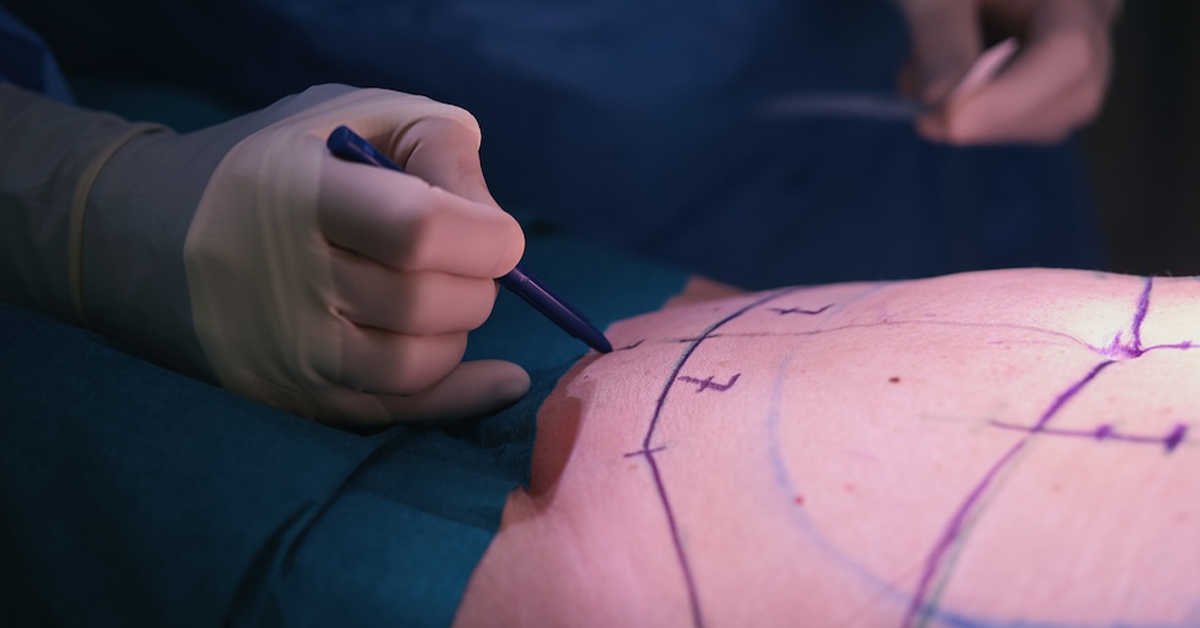How to Lose Belly Fat After Breast Reduction?
Breast reduction surgery, while primarily a procedure to alleviate physical discomfort and enhance lifestyle, often leads to a renewed focus on overall body health.
One common post-surgery goal is losing belly fat, a task that can be challenging yet rewarding. This article aims to guide you through effective strategies for shedding belly fat after undergoing breast reduction, emphasizing the importance of a balanced approach to diet, exercise, and lifestyle.
The journey to a flatter stomach post-surgery is not just about aesthetics; it’s also about embracing a healthier lifestyle. The correlation between breast reduction and weight management is significant, as the changes to one’s body can impact both physical health and psychological well-being.
Understanding this connection is the first step towards a successful weight management journey.
Understanding Breast Reduction and Its Implications
Breast reduction surgery medically known as reduction mammoplasty, is a procedure designed to remove excess breast fat, glandular tissue, and skin to achieve a breast size more proportionate to your body. While it provides relief from physical discomfort like back pain and posture issues, the surgery can also be a turning point in one’s health journey.
Post-surgery, many individuals experience changes in their body’s metabolism and physical capabilities. Adjusting to these changes can sometimes lead to weight gain, particularly around the abdomen. Understanding the reasons behind this potential weight gain, such as hormonal changes or reduced physical activity during recovery, is essential in addressing it effectively.
The Importance of Managing Weight Post-Surgery
Maintaining a healthy weight after breast reduction is crucial for several reasons. Physically, it helps in reducing the risk of health complications associated with weight gain, such as diabetes and heart disease. Psychologically, it plays a significant role in enhancing self-esteem and body image.
Weight management after surgery isn’t just about losing fat; it’s about adopting a lifestyle that supports overall health and well-being. It’s an opportunity to reevaluate and adjust your diet, exercise routine, and other lifestyle habits to support a healthier you.
This concludes the first part of the article. I’ll proceed with the comprehensive guide to losing belly fat, covering dietary adjustments, exercise, and lifestyle changes in the next sections. Let me know if there are any specific details or adjustments you’d like to include.
Comprehensive Guide to Losing Belly Fat
Balancing Your Diet
Post-breast reduction, a balanced diet plays a pivotal role in managing belly fat. It’s not about drastic calorie reduction but about choosing the right foods that nourish and satisfy.
Incorporating a variety of fruits, vegetables, whole grains, lean proteins, and healthy fats can create a fulfilling and fat-reducing diet. Fiber-rich foods, in particular, are essential as they help regulate digestion and can keep you feeling full longer.
Specific Foods and Diets
Focus on foods known for their fat-burning properties, like green tea, citrus fruits, and foods high in omega-3 fatty acids, such as salmon and walnuts.
Additionally, consider diets that promote gradual weight loss and are sustainable in the long term. Fad diets might offer quick results but can be detrimental to your health and often lead to rapid weight regain.
Exercise and Physical Activity
Safe Exercises After Breast Reduction
Once your doctor gives you the green light, start incorporating exercises that target overall weight loss, with a focus on the abdominal area. Initially, opt for low-impact activities like walking or swimming to avoid strain on your surgical site.
Gradually introduce more intense workouts, such as cycling, aerobics, or targeted strength training, as your recovery progresses.
Targeting Belly Fat
Exercises like planks, crunches, and Pilates can specifically target belly fat. However, remember that spot reduction is a myth; these exercises should be part of a broader fitness routine that includes cardio and strength training for overall fat loss.
Lifestyle Changes
Importance of Sleep, Stress Management, and Hydration
A holistic approach to losing belly fat encompasses more than just diet and exercise. Adequate sleep is crucial for weight loss, as it regulates hormones that control appetite.
Stress management is equally important; high stress levels can lead to weight gain, especially around the belly. Techniques such as meditation, yoga, or even simple breathing exercises can be highly beneficial.
Hydration is another key factor; drinking plenty of water boosts metabolism and helps in fat loss.
Developing Healthy Habits
Incorporate habits that contribute to overall health, like eating slowly to improve digestion, avoiding late-night snacking, and minimizing the intake of processed foods and sugars.
Consistency in these habits is what leads to long-term success in weight management.
Medical and Professional Support
Post-surgery, it’s crucial to stay in touch with healthcare providers. They can offer personalized advice based on your specific health needs and recovery status.
If you’re struggling with weight management, consider consulting a dietitian or a fitness expert. Professional guidance can provide you with a tailored plan that aligns with your body’s needs and recovery process.
Success Stories and Motivational Examples
To inspire your journey, look to success stories of individuals who’ve faced similar challenges. Many have found that with the right combination of diet, exercise, and lifestyle changes, achieving a healthy weight post-breast reduction is not only possible but also empowering.
Conclusion
Losing belly fat after breast reduction surgery is a journey that goes beyond physical appearance; it’s about embracing a healthier lifestyle. By focusing on a balanced diet, regular exercise, and positive lifestyle changes, you can effectively manage your weight and enhance your overall well-being. Remember, the key is consistency and patience. It’s not just about the destination but also about the journey towards a healthier you.
Your journey may have its challenges, but with the right approach and support, you can achieve your health goals. Stay motivated, seek professional advice when needed, and most importantly, listen to your body. Every step you take towards a healthier lifestyle is a step towards a happier, more confident you.
Frequently Asked Questions
It’s crucial to follow your surgeon’s advice regarding post-operative care. Generally, light exercises like walking can be started a few weeks after surgery, but for more strenuous activities, especially those targeting the belly area, it’s often recommended to wait at least 6-8 weeks. This waiting period ensures proper healing and avoids complications.
Post-surgery, a balanced diet rich in nutrients is vital. Focus on incorporating whole foods like fruits, vegetables, lean proteins, and whole grains. Reducing the intake of processed foods, sugary beverages, and high-caloric meals will also aid in losing belly fat. Consult a dietitian for a personalized diet plan.
Once cleared by your doctor, combine cardiovascular exercises (like brisk walking, cycling, or swimming) with strength training. Targeted abdominal exercises can also be included, but remember that overall body fitness is key to losing belly fat. It’s important to start slowly and gradually increase intensity.
Yes, stress can impact weight loss. High stress levels can lead to increased cortisol production, which might cause weight gain, especially in the abdominal area. Incorporating stress-reduction techniques like yoga, meditation, and deep breathing exercises can be beneficial.
Hydration plays a crucial role in weight loss. Drinking adequate water boosts metabolism, aids in digestion, and helps in appetite control. Aim for at least 8-10 glasses of water daily, and consider increasing intake if you’re engaging in physical activity.
Breast Reduction in Miami, FL
To begin your Breast Reduction journey in Miami, the first step is to arrange a consultation with our expert team. For more information about the procedure, please feel free to contact us at (305) 406-9055 or schedule your consultation online at your convenience. Our team of experienced professionals is here to assist you every step of the way and answer any questions you may have.








